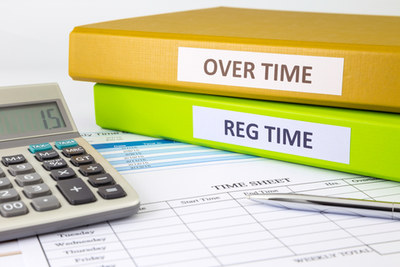 The California Supreme Court’s decision in Troester v. Starbucks Corp is expected to focus on whether employers may undercount off-the-clock hours when only a few hours are at stake (the ““de minimus” exception). Brief time periods are presumably hard to track when it comes to paying workers.
The California Supreme Court’s decision in Troester v. Starbucks Corp is expected to focus on whether employers may undercount off-the-clock hours when only a few hours are at stake (the ““de minimus” exception). Brief time periods are presumably hard to track when it comes to paying workers.But the more serious challenge to these “donning and doffing” lawsuits (named for the time it takes to put on and take off protective gear before clocking in and after clocking out) may be whether they can be brought as class action lawsuits. Individual workers risk a Pyrrhic victory in wage theft lawsuits over small amounts of money. Only classes of similarly situated individuals can prevail in a meaningful way. The hot question is “what’s similar?”
Issue One: Does the Federal “De Minimus” Exception Apply?
This is the threshold question.
Douglas Troestor claims that he had to set the store’s alarm system and walk co-workers to their cars after he logged off his computer, which kept track of his compensable hours. Those tasks took him between four and ten minutes every night. He complains that he should have been paid for this time under California Labor Code sections 510, 1194, and 1197. At $8 per hour, that comes to slightly more than $102.
In 1946, the Supreme Court defined an exception to the federal Fair Labor Standards Act (FLSA) rule that all work hours must be compensated. This “de minimus” exception applied to short periods of time that would otherwise be difficult to track.
Starbucks argues that the federal exception should be implied in the interpretation of California law. Some court decisions support this contention. Troester argued that since the exception could have been included in the California statute, but was not, to imply it now would be contrary to the state legislature’s intention. It could also be argued that time tracking technology has changed since the guiding 1946 Court decision.
Issue Two: What Exactly Does “Similar” Mean?
The phrase “donning and doffing” has come to be applied to lawsuits that have nothing to do with putting on or taking off clothes. It has become shorthand for claims involving necessary, brief tasks that must be completed before someone can go to work. These usually occur before or after timekeeping takes place.
In a class action lawsuit, a small group of named plaintiffs represents the claims of a larger group of individuals who have similar claims against the same defendant. Troester brought this lawsuit on behalf of himself and a putative class of all non-managerial California employees of Starbucks who performed store closing tasks from mid-2009 to October 2010. The issue is then, how similar are their situations? Are they legitimately a class who can take issue with the “de minimus” exception to the donning and doffing rules?
Is the employee who took two minutes to perform these tasks at a small store like the employee of a large and busy store, who took fifteen minutes to finish these tasks? With a potentially very large class of plaintiffs, how can one collect evidence of allegedly unpaid time? Is statistical evidence probative? For that matter, is the time taken to close a store sufficiently like the time it takes to take off protective clothing for the donning and doffing rules to apply? There are more questions than answers and recent Supreme Court decisions are not necessarily helpful to the plaintiffs in Troester.
Problematic Precedent for Class Action Status in Donning and Doffing Lawsuits
The plaintiffs’ problem lies with the 2015 Supreme Court decision in Tyson Foods v. Botaphakeo. There the Court (literally) slices and dices the classes of employees who can claim to be similarly situated for class action donning and doffing purposes very finely.
READ MORE CALIFORNIA LABOR LAW LEGAL NEWS
Finally, there was no move toward extending donning and doffing rules to fast food workers who are not changing clothes, but walking co-workers through the parking lot.
What Lies Ahead for Troester v. Starbucks Corp
If the California Supreme Court imports the federal “de minimus” exception into California law, the battle will move to what, if anything, is slight, slender and, ignorable in terms of unpaid work. If the California Supreme Court resists the importation of a 73-year old federal exception, the battle may move to a definition of “similarly situated” for class action purposes. It’s still far from over.

READER COMMENTS
Brenda Shaw
on